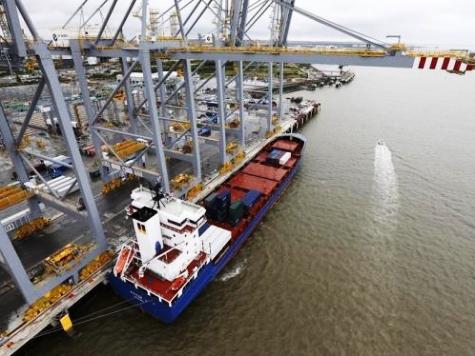Cypriot ship owners are speaking out against EU regulations which they say will push up the cost of shipping and make it harder for European companies to compete with the rest of the world, according to the Cyprus Mail.
Draconian rules designed to cut carbon dioxide emissions in shipping to promote environmental policies are set to come in on 1 January 2015.
But an official from the Cyprus Shipping Chamber (CSC) has told the Cyprus Mail that any decisions should be taken at international level not just by the European Union as any unilateral step by Brussels would affect their competitiveness.
The regulation proposed by the EU aims at reducing ship CO2 emissions, which is considered responsible for global warming, by 2 per cent by 2020.
“EU regulation would require that ships trading to Europe will have to introduce additional measures both in terms of procedures, monitoring and reporting, as well as in terms of equipment for the better monitoring of the ship’s fuel consumption,” Alexandros Josephides said deputy director general of the CSC.
David Balston, Director of Safety and Environment at the UK Chamber of Shipping also has concerns about the “unintended consequences” of “well meaning regulation”.
“While environmental regulatory frameworks are a necessary and responsible response [to climate change], the rising costs of compliance place a particularly significant financial burden on operating costs of smaller companies in the sector. This could have a significant impact on their sustainability as a business.”
Mr Balston pointed out that shipping continues to be the most carbon efficient and least environmentally harmful means of transporting goods and people around the world, contributing just 2.7 per cent of global greenhouse gases. Regulations which are imposed without due consideration to the impacts may, he says, provide a worse situation than we currently have.
In the case of sulphur emissions from switching fuel to meet EU regulations, he warns those committed to driving through climate change policies “it is estimated that it will add 12 m tonnes of CO2 in Europe alone.”
Both the Cypriots and the UK CoS agree that the changes must happen at international level via the International Maritime Association rather than unilaterally by the EU, in order to preserve jobs in the industry and the avoid option of ‘flagging out’. This option is available to ships whereby they adopt the ensign of another – non-EU – country to avoid these EU regulations which damage the competitiveness of European businesses. But it has a knock on effect for British security in the case of calling up ships for military use and on the treasury.
Josephides, who is also a marine manager at the business group which represents around 160 shipping companies, says via the IMO “is the only way of securing a globally harmonised system”.
While the introduction of EU regulations on CO2 cuts could impact the competitiveness of the European and Cypriot shipping industries compared to non-European countries, a reduction in fuel consumption could also help companies curb operational expenses, Josephides added.
According to the CSC, the shipping sector accounts for around 7 per cent of the Cyprus economy. The size of the island’s commercial fleet was 20.8 million gross tonnes in June last year, according to the European Union Shipowners’ Association.

COMMENTS
Please let us know if you're having issues with commenting.